NePAD was launched in 2001. African leaders who wanted to take decisions themselves about the sustainable growth and development of Africa undertook the initiative. NePAD is adopted by the African Union (AU) as an economic network within the AU.
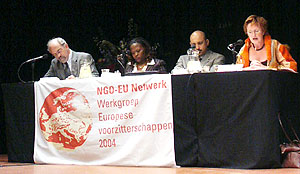 |
| the four speakers |
The EU regards itself as an important partner to both the AU and NePAD. The EU is an important partner and donor for the African states participating in NePAD. The EU is
committed to offering concrete support to the process of the establishment of the AU and NePAD.
Conference recommendations
The NePAD Secretariat, South African civil society and the EU were represented at the NiZA-conference on the 19th of May in Felix Meritis, Amsterdam, and gave recommendations towards each other and towards European civil society organisations on their roles in relation to NePAD.
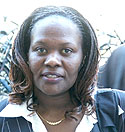 |
| Ms. E. Change |
Ms. E. Change, co-ordinator for Corporate Governance for the African Peer Review Mechanism (APRM), represented the NePAD Secretariat. Her recommendations during the conference were mainly addressed to civil society organisations in the AU:
- Civil society should organise powerful platforms for discussions, and for the exchange of information, concerning NePAD;
- Civil society should look for agreement on the different issues of the NePAD process and form a more joint position and strategies on NePAD.
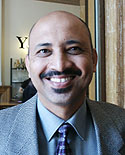 |
| Mr. D.M. Balia |
Mr. D.M. Balia, chief director Transparency International South Africa, addressed issues on NePAD that are of concern to South African civil society organisations. His recommendations were towards the NePAD secretariat, the AU and the EU:- African leaders and the NePAD secretariat should actively explore ways of participation for civil society organisations in the NePAD process, on national and regional level, and learn from the involvement of organisations representing the population;
- The EU should actively and financially support the involvement of civil society organisations in the NePAD process.
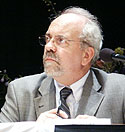 |
| Mr. J. Boidin |
Mr. J Boidin, member of the European Commission, represented the EU and discussed the positive potential of the APRM and directed his recommendations to the EU:- The EU should better be modest in their comments on the APRM process. It is a very ambitious plan and there still is a long way to go for Europe on peer reviewing.
- The APRM should be seen as a growing process, not as a conditionality for European aid.
NiZA has committed itself to supporting civil society organisations in Botswana, Mozambique, South Africa and Zambia in their efforts to participate in the NePAD process and to influence it. The Economic Empowerment Programme will collaborate with 22 partner organisations within a two and a half year sector plan on NePAD that will be operational from the second half of 2004.
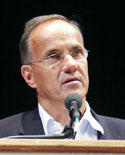 |
| Peter Hermes, NiZA |
NiZA informs and lobbies the Dutch government and the EU on issues concerning the NePAD process and the role of civil society within this process. NiZA will continue to do this, with input from the partner organisations, to ensure the continual attention of the EU and the Dutch government and to promote their active and financial support to the NePAD process and to the participation of civil society organisations within the process.
The role of the EU in relation to NePAD.pdf (64 Kb)
Agenda for the campaign 'Europe in the world'
NiZA Economic Empowerment Programme

